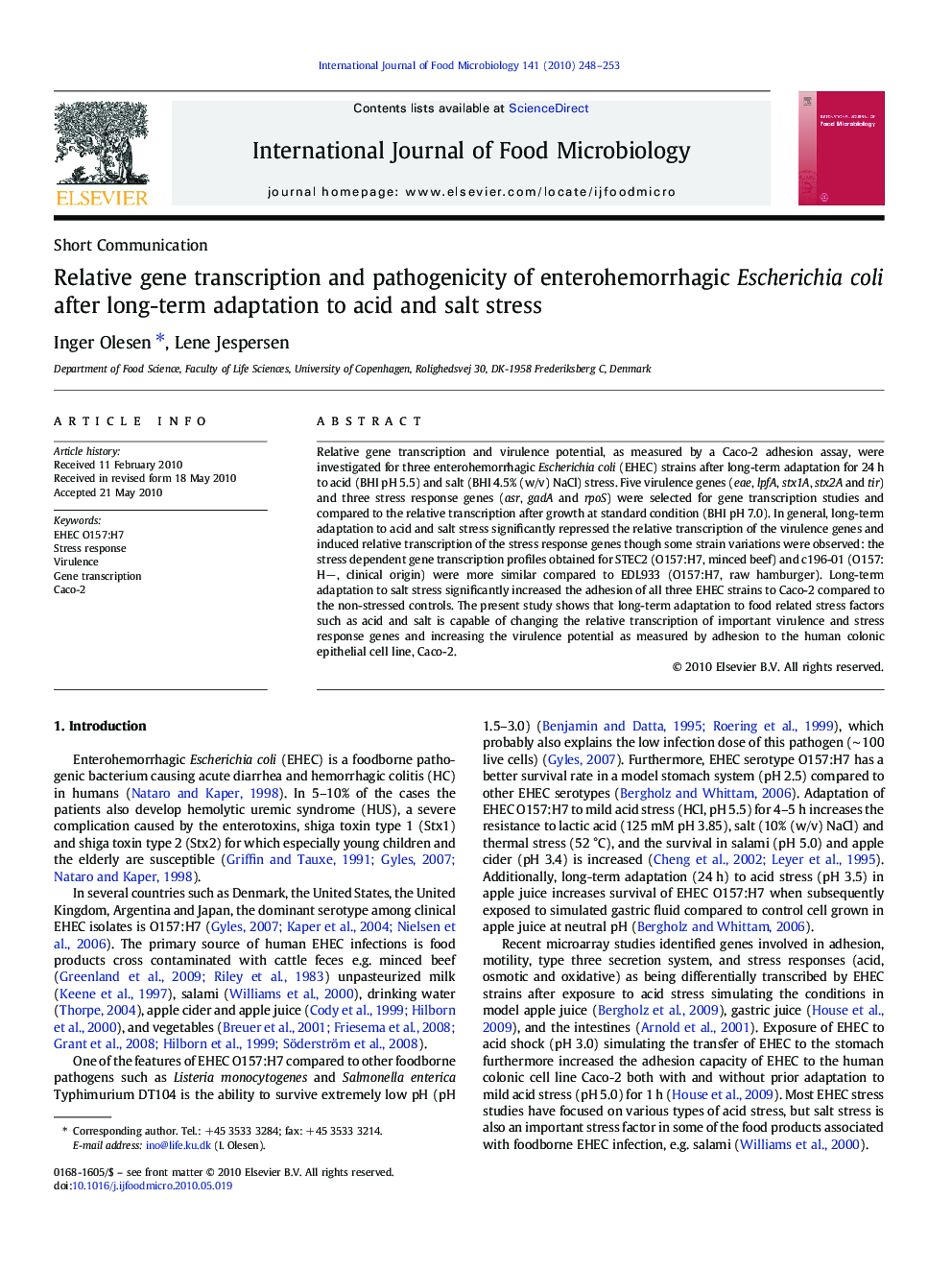| Article ID | Journal | Published Year | Pages | File Type |
|---|---|---|---|---|
| 4368112 | International Journal of Food Microbiology | 2010 | 6 Pages |
Relative gene transcription and virulence potential, as measured by a Caco-2 adhesion assay, were investigated for three enterohemorrhagic Escherichia coli (EHEC) strains after long-term adaptation for 24 h to acid (BHI pH 5.5) and salt (BHI 4.5% (w/v) NaCl) stress. Five virulence genes (eae, lpfA, stx1A, stx2A and tir) and three stress response genes (asr, gadA and rpoS) were selected for gene transcription studies and compared to the relative transcription after growth at standard condition (BHI pH 7.0). In general, long-term adaptation to acid and salt stress significantly repressed the relative transcription of the virulence genes and induced relative transcription of the stress response genes though some strain variations were observed: the stress dependent gene transcription profiles obtained for STEC2 (O157:H7, minced beef) and c196-01 (O157:H−, clinical origin) were more similar compared to EDL933 (O157:H7, raw hamburger). Long-term adaptation to salt stress significantly increased the adhesion of all three EHEC strains to Caco-2 compared to the non-stressed controls. The present study shows that long-term adaptation to food related stress factors such as acid and salt is capable of changing the relative transcription of important virulence and stress response genes and increasing the virulence potential as measured by adhesion to the human colonic epithelial cell line, Caco-2.
